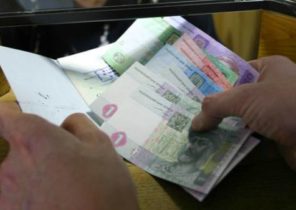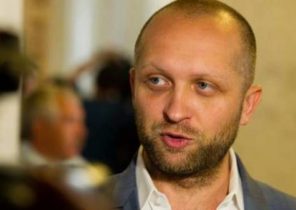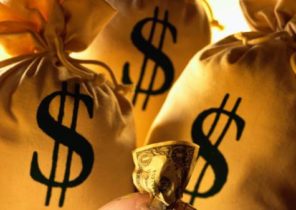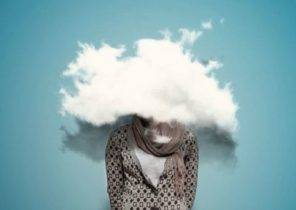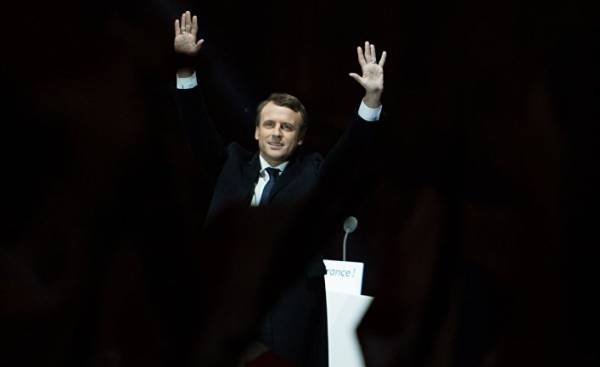
The victory of Emmanuel Macron in the presidential election was good news for all supporters of the European project in France: for some time they were able to prevent the coming to power of the National front, and the possible collapse of the European Union. However, a systemic crisis, which is France, after the elections did not solve. And it is unclear whether the newly elected French President to hold such overdue reform. And they affect not only the economy, but the device of the French society, which continues to function under very heavy model “of the welfare state”. Does the macron sufficient courage and will to reform the system?
Almost his entire career macron remained a committed liberal monetarist. At the time, he was co-author of the famous “Attali report” — manifest economic liberalism. Causes issues of its excessive “multiplicity”: stock broker, who made good as the Bank Rothschild, have been educated in philosophy (thesis on Hegel), Advisor to President Hollande on the economy, a graduate of the nomenclature of the National school of administration — ENA. For anybody not a secret that the macron is close to the leaders of big business, whose interests he lobbied, being the economic Advisor to Hollande, and then Minister of economy. In this position, he adhered to the economic strategy proposed by Brussels and Berlin. I.e., austerity, renunciation of economic sovereignty and collapse of the “social conquests” of the French workers.
The presidential program of Macron enough of a compromise, it combines a set of moderate prescriptions as socialists and Republicans:
— reduction of bureaucracy,
— reduce the cost of health insurance and unemployment benefits,
— investment in professional training of youth,
— reduction of corporate tax to 25%,
— save 35-hour work week, provided that it is a moderate correction,
— however, macron said that will not yield to demands of the left forces, which require the abolition of “labour Code” — adopted last year by the liberal reforms of labor legislation
— migration policy macron believes the admission of refugees is a moral imperative, however, proposes to accelerate the process of consideration of applications and the expulsion of persons who have not received refugee status,
— Makron is configured unambiguously Pro-European, he was in favour of deepening European integration, which implies, in particular, the total budget and the appointment of the Minister of Finance of the Eurozone. However, in Germany cautiously look at the terms of “socialization of debts” of the Eurozone, in which the Germans have to pay for the debtors, including Italy and France,
— Makron extremely cautious approach to the topic of Islamic fundamentalism and is, apparently, support the Arab-Muslim community of France. However, how long he can ignore the Islamist threat? After all, from a new generation of French Muslims went out performers of resonant terrorist attacks that rocked France in recent years.
France’s problem is extremely serious: the economy for many years is stagnating, growth is almost zero. Public debt is approaching 100% of GDP, unemployment remains at 10% among young people — about 24%. The foreign trade deficit amounted last year to about 50 billion euros. This list could go on and on but one thing is certain: the socio-economic problems of France, where for several decades were not carried out structural reforms, has reached a critical level. A slow process of degradation takes place on the background of the destruction of the middle class, excessive inflating of the welfare state, the contents of which absorbs the lion’s share of GDP. Increased taxation of employment of the population and the maintenance of the many millions of “social dependents” undermine the prospects for economic growth in France.
Ready French society to upgrade and reform? Yet these signs are not visible. Foreign observers believe that France lives in isolation from reality, it is one of the most heavily regulated and burdened with taxes economic systems in the Western world. French society, imbued with Republican ideas, doesn’t want to reduce the role of the state and enhance private initiative. On the contrary, the representatives of the “top” and “bottom” are demanding greater state intervention in the economy and politics. The French stubbornly defend their right to a “French lifestyle”, they want to work less, too early to retire and enjoy all social guarantees. Until now, France managed to maintain a high standard of living thanks to the accumulated in the postwar years resources and high-tech public sector: unlike the UK, the country retains a significant portion of the national industry. France is characterized by high productivity, the economy is extremely diversified — from nuclear energy and aviation to the wine and luxury goods. But how long the country will be able to withstand ballast exorbitant public and social spending?
The socio-political system of France requires a serious shake-up. Privileges are used by the top political establishment — the alumni of the prestigious National school of administration — ENA, including all the presidents of the past decades. France has developed a special political tradition when the majority of leadership positions in government and the leading parties takes it is the graduates of ENA. The so-called “anarchy” join the ranks as a right – and centre-left. Thus, the elite is played in a confined space, its updating becomes impossible. The British Guardian once described the political elite of France, “the ruling clique”. Macron also refers to the “anarcho”.
If the planned reform of the Rules fail, then at the next election to power really can come the right – and left-wing radical party, the pressure which is managed with great difficulty to restrain. The first round of elections in France showed that the protest electorate (right and left) is about half of the total number of voters. This is a deeply disturbing signal: every second French voted against the subordination of the country to Brussels, against the European currency, European integration, globalism, the dominance of financial capital. After the victory of Makron these people are not going anywhere and will Express their discontent in all possible ways. To ignore this fact is impossible. The gap between the interests of citizens and political elites in France greater than ever. This is evidenced by the defeat of the two leading parties of the right and left of center socialists and Republicans. To continue to govern the country on the old rules is impossible, however, whether the new leadership to implement radical reforms? Do not forget that over the past 30 years of continuous stagnation of the reform failed to carry out any of the French presidents, whether it’s françois Mitterrand, Jacques Chirac, Nicolas Sarkozy or françois Hollande. If the Makron more successful than their predecessors? Only time will tell.
